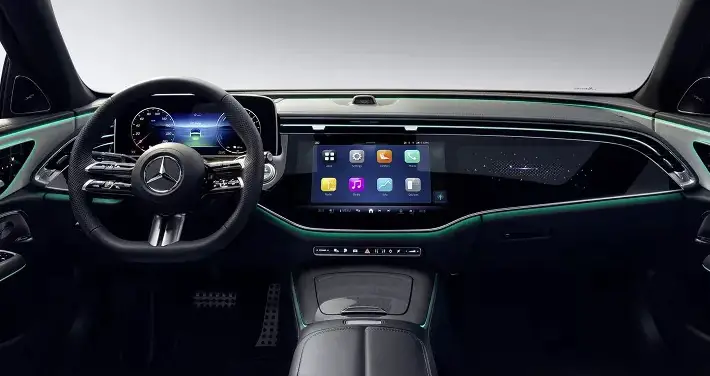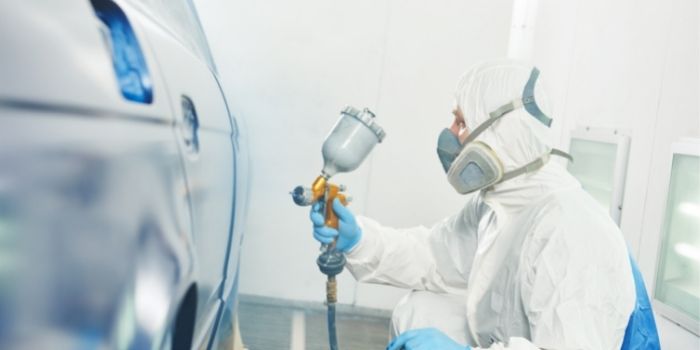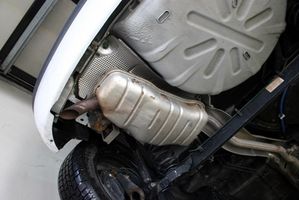Nothing ruins a summer drive faster than stepping into a car that feels like a sauna.
Or a winter commute where the air is as icy as the Arctic. Your car vent controller—small, unassuming, yet heroic—lets you control airflow, direct it where you need it, and keep your ride comfortable.
But when it stops working, suddenly your car feels more like a punishment than a sanctuary.
If you’ve ever faced the frustration of “car vent controller not working”, “air conditioner vent not working”, or “car air vents not working”, you’re not alone.
Luckily, most issues are fixable, and in many cases, the solutions don’t require a mechanic… though sometimes a professional touch is the safest route.
Let’s walk through the common causes, fixes, and preventive tips for your HVAC system, with a little personal flair thrown in.
Understanding Your Car’s Vent System
Before diving into fixes, it helps to understand what’s happening under the dashboard.
Your car’s HVAC (Heating, Ventilation, and Air Conditioning) system consists of:
- Vent Controller / Selector: Directs air to specific vents (floor, dashboard, defrost).
- Blower Motor: Pushes air through the vents.
- Blend Doors / Actuators: Control the mix of hot and cold air.
- Ducts & Vents: Deliver the air to the cabin.

Vent Controller Failure – Common Causes and Fixes
When your air conditioner vent selector is not working, the problem could be electrical, mechanical, or even software-related in modern cars.
Knowing how these components interact makes troubleshooting much easier.
1. Blown Fuse
The simplest culprit is often a blown fuse—your vent controller silently refusing to play nice.
Fix:
- Locate your fuse box (consult the owner’s manual).
- Inspect fuses linked to the HVAC system.
- Replace any blown fuse with the exact same amperage.
Pro tip: Keep a spare fuse in your glove box. It’s the cheapest insurance against a sudden car air conditioner vent not working crisis.
2. Faulty Controller Unit
Controllers can wear out from years of turning knobs, pressing buttons, or exposure to moisture.
Fix:
- Test the controller with a multimeter to check for continuity.
- Replace with an OEM or high-quality aftermarket unit if faulty.
This is often the case when your air conditioner vent selector is not working despite fuses and wiring checks.
3. Electrical Issues
Loose wires, frayed connections, or corroded terminals can stop your vent system in its tracks.
Fix:
- Remove the controller panel carefully.
- Inspect connectors for corrosion or loose pins.
- Repair damaged wires using solder or heat-shrink tubing for a durable fix.
Electrical gremlins are a common reason for the HVAC vent selector not working—so don’t ignore this step.
4. Blocked Vents
Sometimes the problem isn’t electronics at all. Dust, leaves, or debris can obstruct airflow, making it seem like your vent controller is broken.
Fix:
- Use a vacuum with a narrow nozzle or compressed air to clean vents.
- Replace the cabin air filter if clogged; it improves airflow and air quality.
If your car air vents are not working, this is often the simplest fix—no tools beyond a vacuum needed.
5. Faulty Blower Motor
If the controller works but the air won’t move, your blower motor might be on strike.
Fix:
- Turn the fan on at different speeds.
- If inconsistent or silent, test the voltage at the blower motor.
- Replace the motor if it fails the test.
A healthy blower motor is critical for any air conditioner vent not working scenario.
6. HVAC System Malfunction
Sometimes the vent controller is innocent, and the issue lies in the larger HVAC system: refrigerant leaks, compressor failure, or sensor problems.
Fix:
- Professional diagnostics are recommended.
- A mechanic can run system tests, identify leaks, and repair failing components.
When your car air conditioner vent is not working despite DIY fixes, this is usually the culprit.
7. Software or Calibration Issues
Modern vehicles with digital climate controls may suffer from glitches.
Fix:
- Reset the system by disconnecting the battery for a few minutes.
- Follow the manual’s calibration procedure.
- Persistent problems may require dealership-level software diagnostics.
This often resolves issues where the HVAC vent selector is not working sporadically.
8. Damaged Control Knobs or Buttons
Physical damage to buttons or knobs can prevent proper functioning.
Fix:
- Inspect controls for cracks, sticking, or broken mechanisms.
- Replace with OEM or compatible aftermarket parts.
Even a small snapped knob can make it seem like your car vent controller is not working, so don’t overlook this!
Maintenance Tips to Keep Your Car’s Vents Working
Keeping your car’s vent system in top shape doesn’t have to be complicated.
Start with the basics: clean or replace the cabin air filter regularly to improve airflow and reduce strain on the blower.
Give moving parts like blend doors and actuators some TLC with occasional lubrication, and check electrical connections to prevent corrosion and ensure signals flow smoothly.
Seasonal system checks—especially before summer or winter—can help catch minor issues before they turn into major headaches.
Safety should always come first when working on your car’s HVAC system.
Always disconnect the battery before touching electrical components, and handle delicate connectors and wires with care—dashboard replacements can be costly.
If a knob or lever feels stuck, don’t force it; resistance usually means there’s an underlying problem that needs proper attention.
If you’ve tried fuses, cleaning, and basic diagnostics, and your car air vents are still not working, it’s time to call a professional.
HVAC systems are complex, and modern cars often require specialized tools or software to diagnose.
A certified mechanic can save time, prevent damage, and get your vent controller blowing properly again.
Upgrading to a Digital or Automatic Climate Control System in Your Car
If your old-school vent controller is starting to feel like a relic from the past, upgrading to a digital or automatic climate control system can bring your car’s comfort into the 21st century.
These systems offer precise temperature regulation, automatic airflow adjustments, and often touch-screen or digital knob controls.
For drivers who value convenience and luxury, the upgrade can feel like moving from a flip phone to a smartphone—suddenly, everything just works better.
When considering an upgrade, you may also need to replace the controller unit. DIY installation is possible if you have moderate technical skills and the right tools, but it can get tricky with modern HVAC electronics and integrated wiring.
Professional installation ensures proper calibration, prevents accidental damage to your dashboard, and guarantees that the system works seamlessly with your car’s existing electronics.
Software Resets and Recalibration for Modern Cars
Modern vehicles sometimes require software resets or recalibration after replacing or upgrading the controller.
Disconnecting the battery briefly or following the manufacturer’s reset procedure often works, but complex digital climate systems may need dealership-level software adjustments to synchronize sensors, actuators, and the controller.
Skipping this step can leave your air conditioner vent selector not working properly, even after a hardware upgrade.
Costs can vary depending on whether you choose OEM or aftermarket parts. OEM replacement units offer guaranteed compatibility and reliability but tend to be pricier, while aftermarket options can save money but may require careful selection to ensure quality and fit.
On average, basic repairs or controller replacements can range from a few hundred to over a thousand dollars, while full digital system upgrades are a more significant investment.
Weighing cost versus convenience, long-term reliability, and your comfort priorities is key before taking the plunge.
Bottom Line
Your car’s vent controller might be small, but it’s mighty—keeping you comfortable, focused, and happy on every drive.
Whether it’s a simple fuse replacement, cleaning out dust, or replacing the controller unit, most problems are solvable with a little patience and know-how.
Remember: if your air conditioner vent is not working, your car air vents are not working, or your HVAC vent selector is not working, don’t panic.
Step through the troubleshooting process, stay safe with electrical components, and call a professional if needed.
Before long, your vents will be delivering air exactly where you want it—and your car will feel like the cool (or warm) sanctuary it’s meant to be.

Based in Orem (Utah) John Paterson graduated from Utah Valley University and has begun writing in 2009. He has a large wealth of experience in writing articles related to cars, automotive repair, wheels, cleaning/maintenance, and much more. He has also written instructional articles in a similar niche for a few online publications as well. Currently, he works as a mechanic in his personal garage shop where he loves serving his countrymen from his heart.






